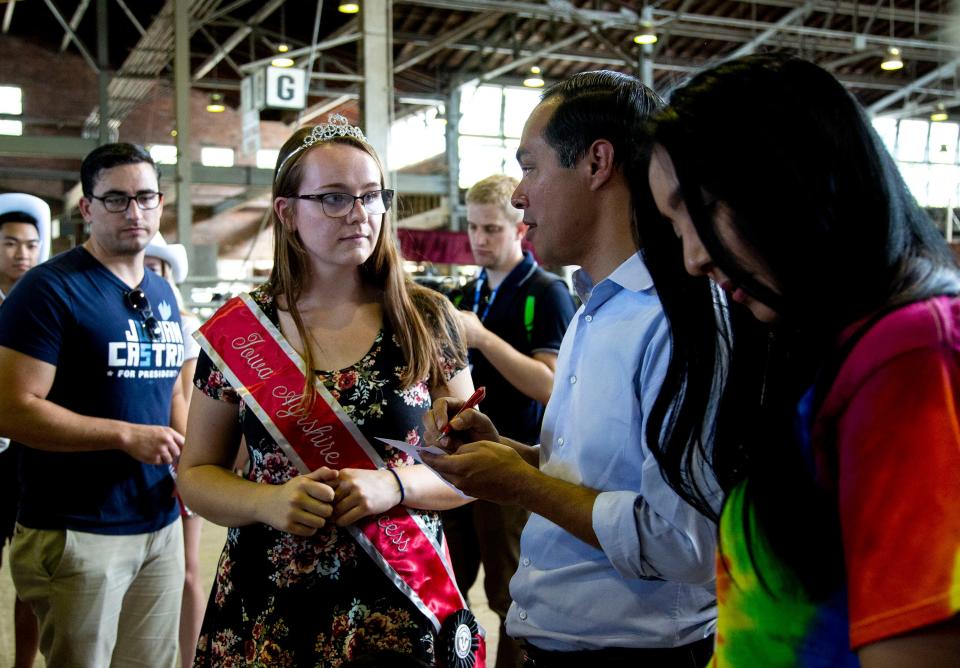Letting Iowa always go first in the presidential primary is un-American
With the first-in-the-nation caucuses just one month away, the Democratic candidates are gearing up to go into all-Iowa mode. Some are in it already. By the time the race is over, the time they spend there will vastly exceed their time in other states, including the ones that come on its heels.
Several of the candidates have practically moved to Iowa. According to the Des Moines Register candidate tracker through New Year's Eve, former Rep. John Delaney of Maryland has attended 237 events in the state, followed by Sen. Amy Klobuchar of Minnesota at 156, Sen. Bernie Sanders of Vermont at 110, Sen. Cory Booker of New Jersey at 103 and Mayor Pete Buttigieg of South Bend, Indiana, at 102.
It's not hard to see why the candidates would make such a fuss over Iowa's caucuses on Feb. 3. As the first place to actually vote, the Hawkeye State can have an outsize impact. Strong showings there helped propel Georgia Gov. Jimmy Carter and Sen. Barack Obama of Illinois into the White House and George H.W. Bush, former congressman from Texas and CIA director, into the vice presidency.
Iowa's politics, demographics
From the perspective of the nation as a whole, though, letting Iowa always go first is a bad practice that forces candidates to focus disproportionately on one state's issues, politics and demographics.
Iowa is one of the least ethnically diverse states in the country. And because it holds caucus meetings, not a primary election, its electorate is even less diverse because many poorer voters often do not have the free time to participate. In 2016, Iowa's caucus electorate was 91% non-Hispanic white. And that was the Democrats! The Republicans hit 97%.

OPPOSING VIEW: Our caucuses represent true democracy
It's not that Iowa voters won't vote for a candidate of color; they twice backed Obama. But they do have somewhat different priorities, farming and ethanol among them. And economic matters are less of an immediate concern in a state with one of the lowest unemployment rates in the nation.
Julian Castro suspends campaign
The Democratic field is also losing many of its minority candidates — former Housing and Urban Development Secretary Julian Castro, the only Latino candidate, dropped out Thursday. It's a development that some critics have, fairly or not, linked to the focus on Iowa and, the following week, New Hampshire.
Iowans counter that they take their civic responsibilities very seriously. We don't doubt that. But so would Arizona or North Carolina or any other state chosen to go first. A better system would involve rotating regional primaries.
Although retail-level politicking is important, the simple truth is that the candidates are spending a lot of time with voters who are not particularly representative of either the Democratic Party or the electorate as a whole. That's a good way to make people elsewhere feel less involved with their democracy.
USA TODAY's editorial opinions are decided by its Editorial Board, separate from the news staff. Most editorials are coupled with an opposing view — a unique USA TODAY feature.
To read more editorials, go to the Opinion front page or sign up for the daily Opinion email newsletter. To respond to this editorial, submit a comment to letters@usatoday.com.
If you can't see this reader poll, please refresh your page.
This article originally appeared on USA TODAY: Iowa caucuses: Always first-in-the-nation primary is un-American
